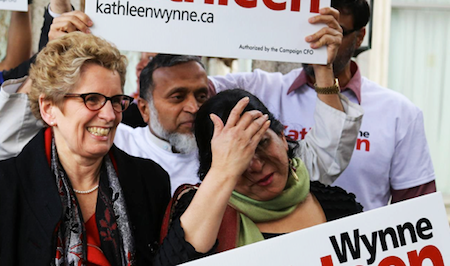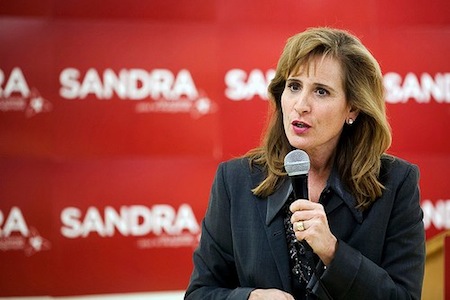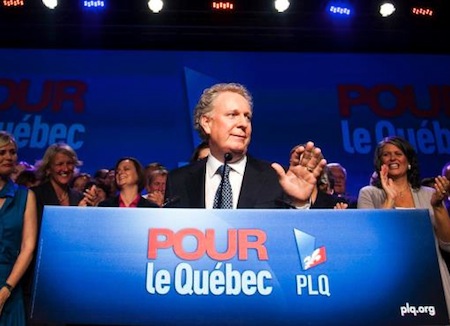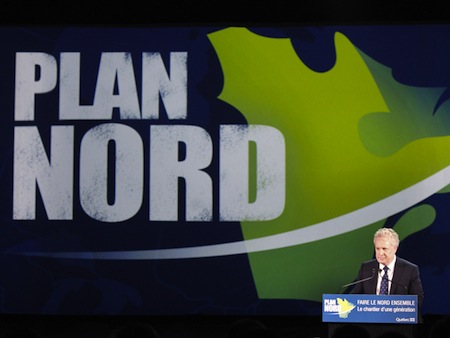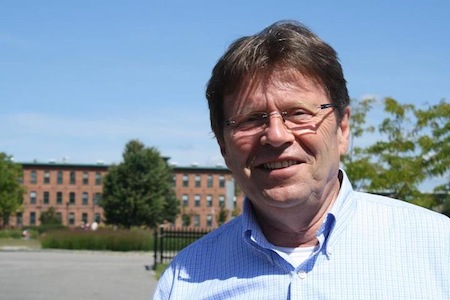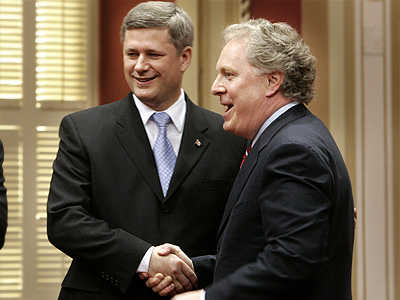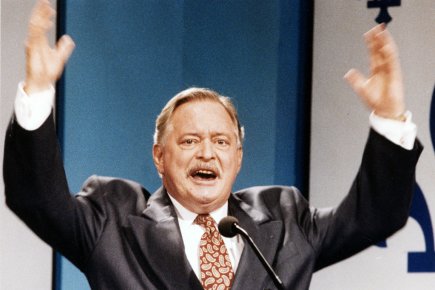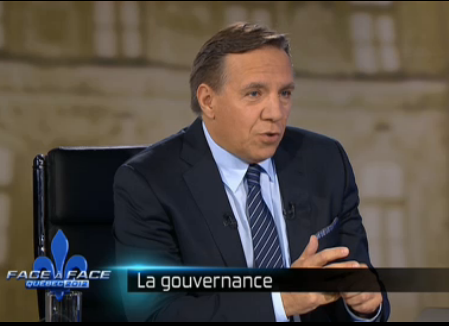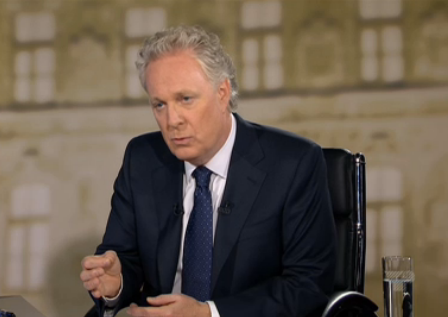When Dalton McGuinty announced late last year that he would step down simultaneously as both leader of the Ontario Liberal Party and Ontario’s premier, it made this month’s Liberal leadership contest also a contest to become Ontario’s next premier.![]()
![]()
It’s not the best of times for McGuinty, who lost an opportunity to regain a majority government in Ontario’s unicameral legislative assembly after losing two by-elections last autumn. The losses came after McGuinty passed — with the support of the opposition Progressive Conservative Party — a bill that froze wages for public teachers and denies the right to strike for the following two years. The bill was seen as a massive betrayal by teachers’ unions that were key to McGuinty’s electoral victories since first becoming premier in 2003.
So his stepping down, after a decade in power, was seen as an opportunity for the Ontario Liberals to reboot before what’s likely to be an upcoming election (although the next election need not take place before October 2015) — and polls show his party in third place, behind both the Tories and the progressive New Democratic Party, and only leading by the narrowest of margins in the greater Toronto area, one of the last bastions of support for provincial and federal Liberals alike.
Originally, it seemed like the runner-up to McGuinty in the previous 1996 leadership race, Gerard Kennedy, was the frontrunner. But poor organization and his unpopularity among party insiders have pushed him to the background.
After delegates were selected over the weekend for the Ontario Liberal conference scheduled for January 25 to 27, two frontrunners have emerged — Sandra Pupatello (pictured above, bottom) and Kathleen Wynne (pictured above, top).
Pupatello won the greatest number of pledged delegates with 27%, followed closely by Wynne with 25%. Kennedy fell far behind with just 14%, with Punjab-born MPP Harinder Takhar in a narrow fourth place with 13%. Two remaining candidates — Charles Sousa (11%) and Eric Hoskins (6%) — followed far behind.
While there are independent and other ex officio delegates who will also be able to participate in the leadership vote, the pledged delegates clearly seem to indicate that the race will come down to Pupatello and Wynne who, like Kennedy, have all held the position of Ontario’s minister of education in the past decade.
Wynne, who would be Canada’s first openly-gay provincial premier, has been a member of the Ontario legislature since 2003, and she served as minister of education from 2006 to 2010; thereafter, she served as minister of transportation and then minister of municipal affairs and housing and aboriginal affairs. Ideologically, she’s to the left of Pupatello, which could help her steal voters who might otherwise support the NDP in any future election.
Pupatello served in the Ontario legislature from 1995 to 2011, when she resigned to take a job as director of business and global markets at PricewaterhouseCoopers. Aside from a stint as minister of education in 2006, she served as minister of economic development and innovation for much of the last five years of her legislative career. She’s seen as more center-right than either Kennedy or Wynne, and she’s also perceived as the ‘establishment’ candidate as well.
Pupatello, 10 years younger than Wynne, is also seen as the more spirited campaigner, a quality that Liberal voters might like to see in a leader who will have to fight tooth-and-nail to retain power after the next provincial election. Continue reading Kennedy falters as Pupatello and Wynne lead race to become Ontario premier
